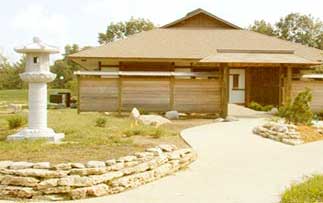|
||||||
|
General Information
Electricity
The voltage used throughout Japan is uniformly 100 volts, A.C. There are two kinds of frequencies in use; 50 Hertz in eastern Japan and 60 Hertz in western Japan (including Nagoya, Kyoto and Osaka). A convertible type of electrical appliance such as a hair dryer, travel iron and shaver will therefore be handy; otherwise a step-down transformer is required to convert the voltage.
There are no columnar-shaped plugs or 3-pin plugs used in Japan but 2-flat-pin plugs are used instead. It is therefore advised to purchase a plug adapter beforehand. |
|
|
Emergency
There are two different phone numbers to dial in an emergency - 110 to call the police or 119 to report a fire or to call an ambulance. These emergency numbers can be dialled from a public telephone without paying for the call by pressing the red button that is located on the front of the phone.
Medical Services
If you need a doctor or first-aid, contact your hotel front desk or ask someone around you. For hospital information, call (03) 5285-8181 in Tokyo. Japanese medical services and facilities enjoy a high international reputation.
Hospitals with English Speaking Doctors In general, hospital reception desks are open 8:30 a.m. to 11:00 a.m., Monday through Friday.
International Catholic Hospital (Seibo Byoin) 2-5-1 Naka-Ochiai, Shinjuku-ku, Tokyo 161-8521 Tel: (03) 3951-1111 Japanese Red Cross Medical Center (Nihon Sekijujisha Iryo Center) 4-1-22 Hiroo, Shibuya-ku, Tokyo 150-8935 Tel: (03) 3400-1311
St. Luke's International Hospital (Seiroka Byoin) 9-1 Akashicho, Chuo-ku, Tokyo 104-8560 Tel: (03) 3541-5151
Tokyo Adventist Hospital (Tokyo Eisei Byoin) 3-17-3 Amanuma, Suginami-ku, Tokyo 167-0032 Tel: (03) 3392-6151
Police
You will notice that there are police boxes very often located by main street crossings in Japan, to keep an eye on people on the street and assist them to find their way to their destination. Japan's crime rate is very low compared to that of many other countries.
Lost and Found If you left your bag or package in a railway station or other public area, go to the stationmaster's office or the nearest police box and ask for English-language assistance. If you left something in a taxi then go to your hotel's reception desk. Taxi drivers often bring the belongings back to your hotel.
Health
Drinking water Tap water is safe to drink anywhere in Japan. Mineral water including major imported brands can be easily obtained from super markets, convenience stores and other similar places. Hospitals Medical systems and facilities in Japan are well established so that you can expect to receive a high standard medical treatment, should you have a problem with your health during your stay.
Inoculations There are no inoculations required for entering Japan from anywhere around the world.
Budget Travel Hints
Like many countries, Japan can be an expensive place to visit if you don't plan ahead, however there are a wide variety of budget accommodation options, transportation passes and sightseeing discounts, which help to make Japan an affordable destination for even the most budget conscious traveler. It is worthwhile taking the time to decide which options will best suit your stay.
Comparing Prices Recent improvements in the foreign exchange rate have meant more favorable prices for overseas visitors to Japan. The price chart in the following page is designed to give an idea of what you can expect to pay for a variety of everyday and travel-related items in Japan.
Dining Out Dining out in Japan doesn't have to be expensive. Restaurant dining in Tokyo for example is certainly no more expensive than in most other world capitals and is often better value for money.
Transportation If you are flying to Japan with one of the country's national carriers, Japan Airlines (JAL) or All Nippon Airways (ANA), and intend to take a domestic flight during your stay, it is worth buying your domestic ticket in conjunction with your international ticket. Both JAL and ANA can offer considerable savings on the cost of internal flights purchased in this way.
Accommodations The cost and quality of accommodation in Japan is comparable with that of most other developed countries and there is something to suit every taste and wallet. Budget options include the Welcome Inn Group, the Japanese Inn Group, the Japan Economy Hotel Group, the Japan City Hotel Association and Youth Hostels.
Sightseeing There are currently eight cities/regions in Japan that offer a discount "Welcome Card" service. Welcome Cards entitle foreign visitors to reductions on attraction and museum entry fees, meals, souvenir shops and accommodation, and are available. |
|

